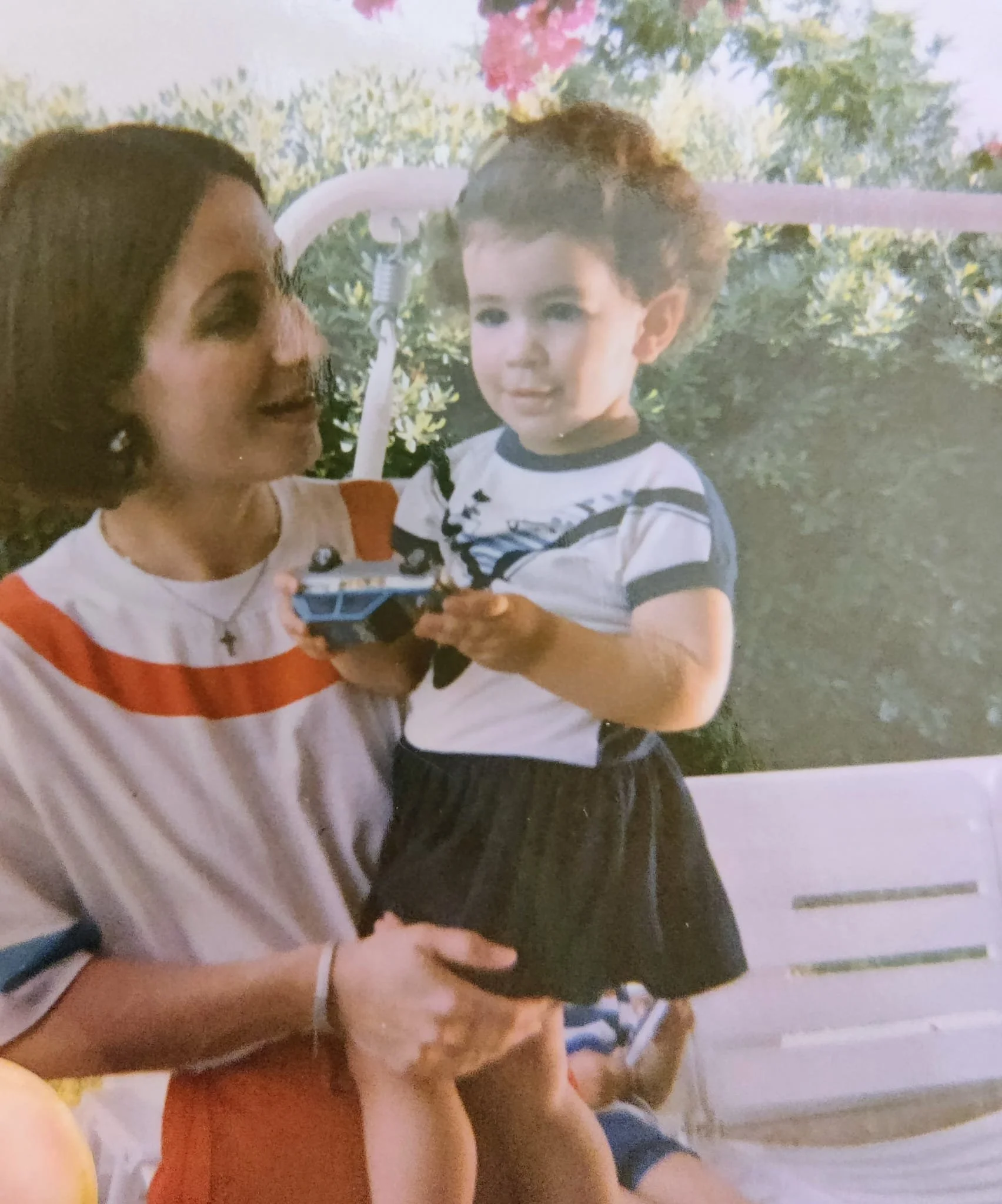Annie’s Story
When my mum died, I was ten years old. She was just thirty-nine.
It was sudden — acute leukemia — and back then, there was nothing anyone could do to save her. One day, I had a mother. The next, I didn’t.
The shock of that moment was immense. What I remember most vividly isn’t just her absence, but the silence that followed it. Nobody really talked about it. Everyone around me — family, friends, teachers — pretended that life would simply go on.
I could tell people were hurting; I saw my grandmother cry quietly that first Christmas, hiding her tears from me. But nobody asked how I was doing. So I learned to hide too.
For years, it was easier to pretend that nothing had happened.
But the body keeps score. My body eventually told me I couldn’t keep burying my pain forever. At twenty-nine, I finally stopped running and started talking. I began to explore the loss I had pushed away for so long.
Only recently — now in my late thirties — have I truly understood what my body was trying to tell me.
We don’t grieve our mothers once.
We grieve them over and over again, at every stage of our lives.
Our grief doesn’t end with “I miss her.”
It evolves. It changes shape.
For me, I discovered there was anger — anger that she missed so many milestones: my graduation, my wedding, the birth of my daughter. There was sadness that my little girls will never know their grandmother, that I will never know what it’s like to be mothered as a mother myself. And so much more.
It wasn’t just about her death.
It was about her absence, all the spaces she used to fill, and all the ones I wish she still could.
And it was about the dreams, hopes, and expectations that died alongside her.
Grief is messy like that. It’s full of contradictions — sadness, love, anger, guilt, gratitude — all tangled together. And it’s deeply, deeply individual.
When I first began reading about grief, I devoured every book I could find about motherless daughters. Many of the stories resonated, but I also realised something important: not everything fit. Because my mum was my mum, and I am me, and our relationship was unique. My grief had to be, too.
The turning point came when I stopped comparing my pain to anyone else’s and started to listen — really listen — to my own emotions. I discovered that grief isn’t something to “get over.” It’s something to move through.
And when we allow ourselves to truly feel, something incredible happens: the pain begins to soften. It doesn’t disappear, but it transforms. It becomes connection.
Over time, I learned that it’s possible to release the pain that was tied so tightly to my loss — and still keep the love, the memories, and all the good things that my mum gave me. That realisation changed everything.
Because so many of us hold on to our pain as if it’s the only thread connecting us to the person we’ve lost. But it’s not. The connection isn’t pain. The connection is love.
And love doesn’t have to be blurred by grief. It can stand clear and strong on its own.
Having walked this path myself, I now support others as they explore their own relationships with their mothers — living or gone. Together, we look closely at those relationships, finding completion and letting go of the pain our hearts cling to out of love. Through this work, I help my clients uncover the truth: that they can keep the love, always, without being weighed down by the hurt.
I feel honoured every time someone lets me witness their story, their tears, their love. And through their journeys, I feel closer than ever to my own mum.
Because I have let go of the pain, but I’m holding on to the memories.
Do I still get sad? Oh, absolutely. Just the other day, a friend’s mother was visiting to help her recover from surgery — fussing over her, bringing her tea, the simple tenderness of being cared for. I felt that familiar ache: I’ll never have that. I’ll never be mothered like that again.
And it hurts. But I’ve learned that it’s okay to feel that way. It’s okay to miss her.
Grief isn’t a problem to fix — it’s a truth to honour. And when we finally allow ourselves to stop running from the pain, we make space for something else: peace, connection, and the freedom to live fully.
Because we deserve that. Our mothers would want that for us.
Annie Xystouris blends emotional healing with physical wellbeing as a Certified Grief Recovery Specialist and Health Coach. Her work helps women understand how unresolved grief can manifest as burnout, exhaustion, or disconnection — and guides them toward lasting healing. Inspired by her own journey of loss, she now supports others in finding strength, balance, and renewed joy. www.anniexystouris.com

